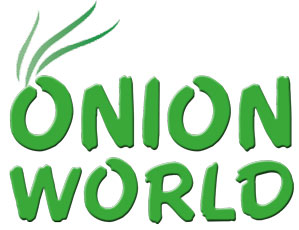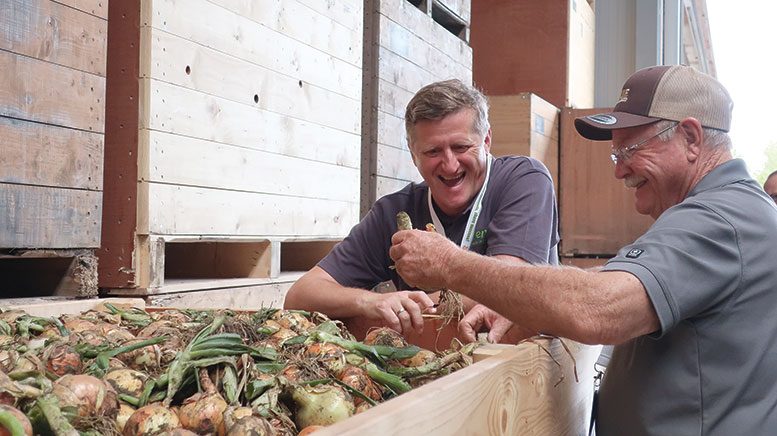By Ben de Nijs, Product Manager Onions, Hazera
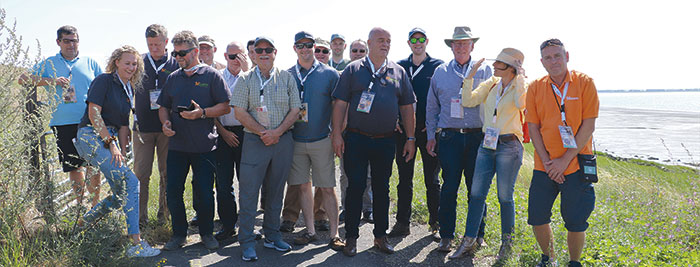
Participants of an onion study tour organized by Hazera got a glimpse of the onion industry in the small, but onion-minded country of the Netherlands this summer. About every two years, Hazera hosts an international onion study tour for its partners in the onion industry, this time bringing attendees from all over the world to the Netherlands the week of July 29 to Aug. 2.
The Netherlands, with the capability to export high-quality onions year-round, is a strong global player in a dynamic onion market. Currently, the country is ranked 12th in onion production, but is the leading exporter of onions. Despite last year’s difficult growing season in which production was down by more than 35 percent, the Dutch were able to export over 800,000 metric tons to over 130 countries.
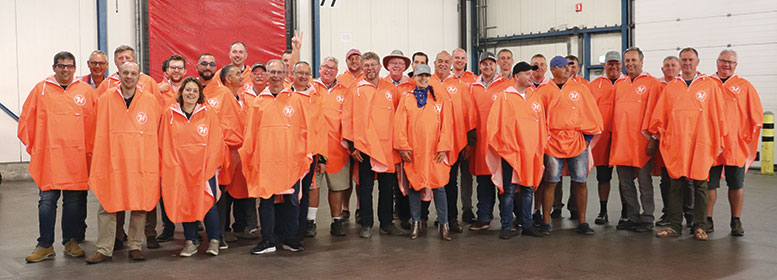
Participants of Hazera’s international onion study tour gather for a group photo at the harbor of Vlissingen in the Netherlands.
Dutch Onions
The tour started with a visit to Hazera’s allium breeding station, where onion breeders, pre-breeders, assistant breeders, phyto-pathologists, entomologists and other Hazera employees active in the research and development department work to improve the onion portfolio. According to the breeders, it’s a continuous process to create new varieties with higher yields, improved disease resistance and tolerance levels, and longer and better storability. Next to this, the breeders are focused on developing varieties with earlier maturities, better uniformity and better firmness.
Later, Chayenne Wiskerke gave a presentation about Wiskerke Onions, a specialist in processing, packing and exporting onions. She mentioned the sustainable projects in which Wiskerke Onions is involved, among them a collaboration with Lamb Weston/Meijer that uses the residual heat from potato processing to dry onions and to generate heat for the company. She also touched on the importance of the nearby proximity of the harbors that enables cheap, but high-quality shipping.
Appropriately, the next visit took the group to Kloosterboer, a company that provides temperature-controlled logistics and partners with others in the produce chain to ensure high-quality shipment. Next, the group toured the harbor of Vlissingen, a strategic location in the province of Zeeland for the export of Dutch onions.
The agenda also included a visit to MSP Onions, which grows, packs and ships onions to 65 countries. The company is constructing a fully automated onion processing plant in which physical labor will be minimal.
With all the packers, shippers and exporters in the Netherlands, the country has an onion processing capacity of over 40,000 metric tons per week. Another big player in this dynamic market is Waterman Onions, which the group visited later in the week. This company exports 120,000 metric tons per year. Wim Waterman talked to the group about the importance of quality and the need for seed companies such as Hazera to start off every season with the best seeds.
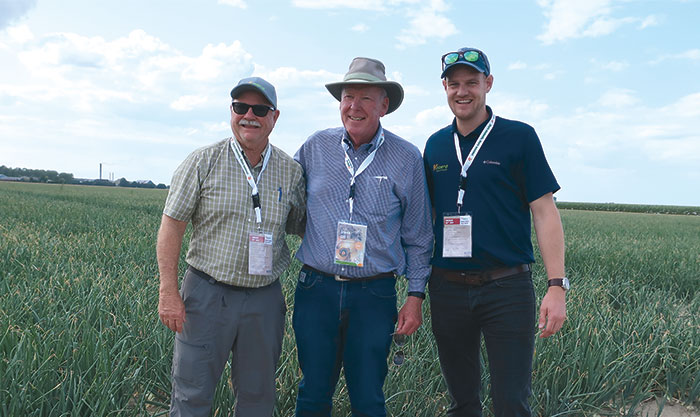
Several U.S. growers joined Hazera’s international onion study tour. Pictured, from left to right, are John Hawk with Horizon Farms, Steve Gill with Gill Onions and Ben de Nijs with Hazera.
Research, Recreation
Chris de Visser with Wagening University & Research gave a presentation about Uireka. This project aims to improve the quality of the Dutch onion and to strengthen the current export position of the Netherlands. To this end, researchers are studying onion related diseases. de Visser detailed the research on Fusarium in onions, mentioning that different sorts of fungus were detected in the Netherlands.
Peter van Duijn with Koppert Biological Systems spoke about the importance of using natural enemies and micro-organisms to prevent diseases and keep plants healthy. In addition, Hans van den Oever with Mooij Agro shared information about storage and storing techniques.
Lastly, the group visited FlevoTrade, where Piet van Liere discussed export markets and challenges. FlevoTrade exports onions, carrots, potatoes, cabbages and other vegetables.
In addition to visiting various onion operations, time was also reserved for leisure. The participants slept in the SS Rotterdam, a former cruise ship that was active on the Holland-America line from 1959 to 2000. They also enjoyed a dinner boat tour on the river Maas and a visit to Neeltje Jans, an artificial island. There, the group saw and heard the stories of the Delta Works, a series of construction projects to protect the land in the southwest part of the country. The Delta Works have been declared one of the Seven Wonders of the Modern World by the American Society of Civil Engineers.
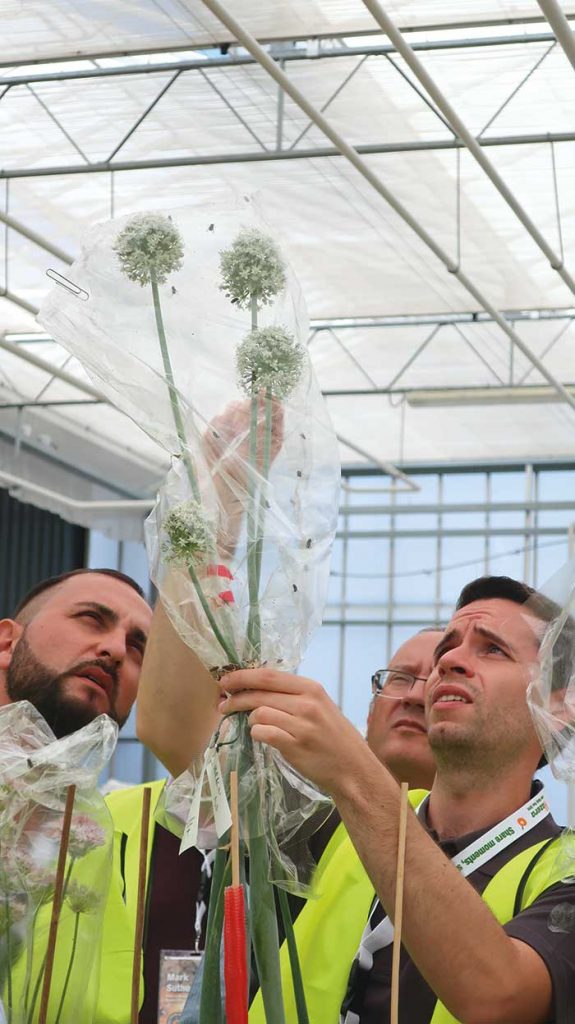
Throughout the week, tour participants were able to network, exchange information and ideas and collaborate. Based on feedback, tour participants seemed to appreciate the experience.
